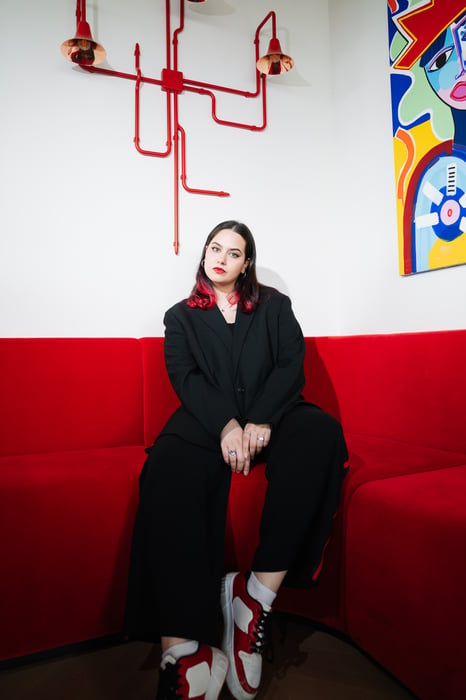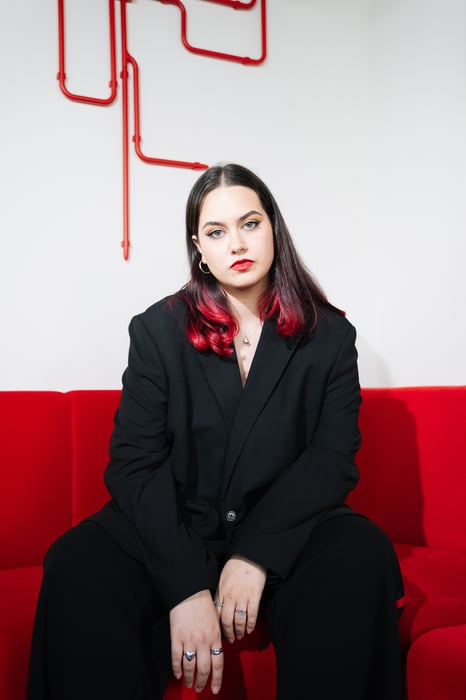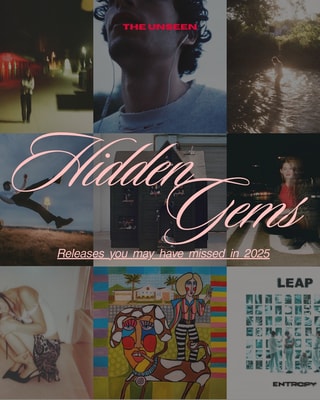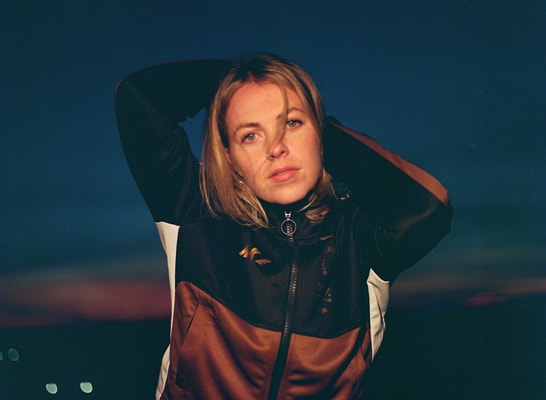From Eurovision to Pop-Vision: A Conversation with TEYA
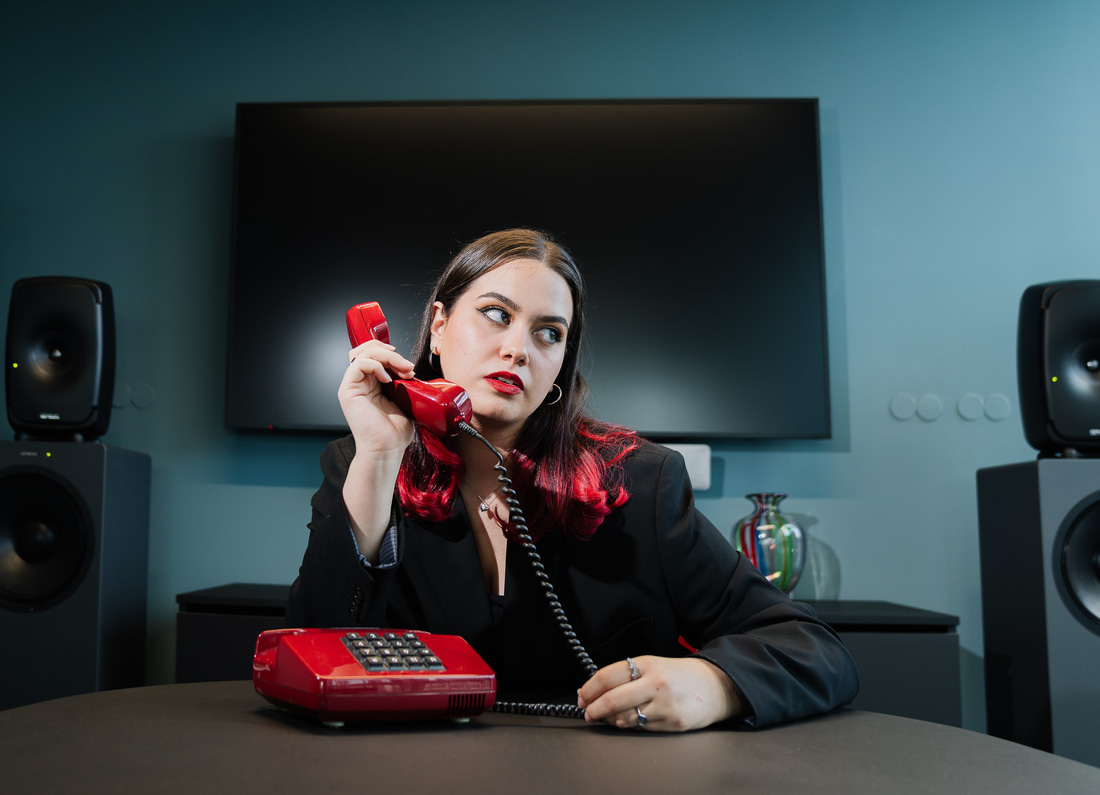
TEYA is an Austrian singer, songwriter, and producer who has made a name for herself with her distinctive blend of pop, electronic elements, and clever lyrics. Since her performance at the Eurovision Song Contest 2023, she has captured international attention with a show that stood out both musically and visually. Beyond the big stages, TEYA reveals herself as an artist who carves out her own space in the music scene with humor, confidence, and a strong sense of pop aesthetics. She has also just released her newest single, "Girls Like Girls," and has talked about it during this interview.
HERE'S THE FULL INTERVIEW:
Frederike: Hello, first of all, thank you for letting us get to know you!
Teya: Thank you for your interest in getting to know me.
Frederike: How would you answer someone who asks, "Who is Teya?"
Teya: It depends a bit on the context. In terms of music, I would say that I make very honest music in the pop world, with a bit of Y2K and hip-hop influences. Basically, I make very direct music, both in terms of sound and lyrics. That's probably a strange answer for someone who asks me, "Who is Teya?"
Frederike: Which three words best describe you? Both musically and personally?
Teya: I would say: open, creative, and empathetic.
Frederike: Where can we find you when you're not making music?
Teya: I would say at home, in my bed, or with friends or family. I'm more of a homebody than a party animal. I love reading, so maybe with a book under a tree or something like that.
Frederike: You're from Vienna, but now you live in Berlin. Where would you chill out with a book like that? Do you have favorite spots in both cities?
Teya: In Berlin, Treptower Park. It's not that far from where I live. I also like Körner Park, which is a bit further away from me, but it reminds me a lot of Vienna. It gives me a real home vibe, so when I'm homesick, I go to Körner Park. And Vienna is beautiful everywhere; there's no shortage of beautiful places, unlike in Berlin. In Vienna, I'm usually at friends' houses, at my place, or in the Stadtpark.
Frederike: I know this is a classic Viennese cliché, but did you find it difficult to order coffee in Berlin?
Teya: I don't really drink coffee, so it's actually quite easy for me. I drink more tea. But I do miss the Viennese coffee house culture a little bit. Because in Vienna, you have really cute, cozy spots on every corner, and I usually like to sit there and work on my laptop or something. You have that in Berlin too, but I find that there's usually no space. I never seem to find a seat either. But I live in the middle of nowhere. So it's not easy for me to get a coffee.
Frederike: Do you have a favorite song that you're playing on repeat right now?
Teya: I'm listening to the new Sombr album, just like everyone else.
Frederike: What's your number one crashout song by Sombr?
Teya: I don't know the title, but it's where he sings, "I don't want the children of another man to have the eyes of the girl I won't forget" (note: the song is called "undressed" by Sombr), which kills me so hard. There are some songs, of course, as a songwriter, I pay a lot of attention to the lyrics, and some songs really grab me. There's a song by some guy, I have no idea what it's called or who it's by, but there's a line that goes, "I moved out, but I never moved on," Or Miley Cyrus's "I throw a party like Paul McCartney with the help of my friends." That's so cool.
Frederike: You have cultural roots in Austria and Serbia. But you also sing in English. Where do you feel most at home musically?

Teya: Definitely in English. I don't see myself as Austrian either. Both my parents are from Serbia, I grew up in Serbia, and I also have Serbian citizenship. I think my mentality and culture are very Balkan-influenced. I love Vienna more than anything, so I see Vienna as my home, I think. Still, that's probably also because my family and my closest friends are there. So I associate home more with people. I've never felt super comfortable singing in German. I think it's simply because I have a rolling "R." I just can't get rid of it. And that's often been brought up. I did a show in Austria, and I was asked live on TV why I don't sing in German. So I mentioned that I have a rolling "R" and so on, and then the counter-question was: "Well, why don't you just turn it off?" And I was like, well, I can't. But that's definitely one of the reasons why I've never felt completely comfortable. English has always been my safe space. I've always loved reading, even as a child, and I love movies and TV series. I'm very interested in cinematography and got into it as a child through my dad. Always use English in the original language. That's how it developed somehow, and I also prefer to write in English.
Frederike: Do you dream in English, too?
Teya: I don't know, I think it's a mix. I ask myself that question quite often. I get asked that a lot, but I really don't know.
Frederike: How did your path to music develop? Was there a key moment when you made the switch from doing music as a hobby to wanting to do it professionally?
Teya: I've always loved singing. I always thought that songwriting was a bit magical, so I'd never be able to do it. I was always a pragmatic child and always had the goal of studying English. Then, I would complete a doctorate and a habilitation program so that I could become a university professor. And that was my goal at age 10. I was that kind of nerdy kid. Then I happened to help out with a project for a producer in some small town outside Vienna. In a home studio. It was as rancid as you can imagine. But the guy forced me to write and said, "Hey, I want to work with you." But I can't pay songwriters. Haha. He didn't pay his songwriters anyway, but he forced me to write for his sake. And I thought to myself, "No, I definitely can't do that," and I was right. I think the first 100 songs I wrote were absolute crap, and you can't listen to them. But I definitely discovered that I really love doing it and enjoy it just as much as singing. It developed in such a way that I knew pretty quickly that I didn't want to do anything else. Thank God I have parents who are very supportive and who saw how happy it makes me. I think that was kind of the turning point where I realized: Yes, this is somehow untouchable and also a possibility that you can do it. And then it just kind of developed that way. Like "one door closes, another opens."
Frederike: You just said that it took you about 100 songs until you felt comfortable -
Teya: And other people too laughs
Frederike: Can you estimate how many songs you've written so far?
Teya: Yes, I think about 100-150 a year. I've been writing since I was 17. Now I'm 25. So that's quite a few songs. Most of them are bad, I have to say. Most of them are just really not good. I think people often forget that. I'm often asked by young songwriters who want to get started and are super frustrated why it's not working. I think it's a skill like any other; you just have to pursue it and give it a go. You also have to invest hours until something comes along that you can listen to. For me, what has helped me a lot and is on my way to becoming a better songwriter is working with others. That's also my number one tip. You don't get better on your own; you have to get ideas from other people and just analyze how other people think. Because it's simply an individual process, no matter who I work with. I'm still learning a lot today, and I think that's also a way to improve.
Frederike: How do you work? How do you write songs? Do you always carry a little physical notebook with you, or are you more of a cell phone notes user? Or are these things that come to you on the go, and you quickly write them down? Or is it really like, okay, I'm going to sit down at my desk and write this now?
Teya: I'm a huge fan of Google Docs. It's my safe space. I don't know if I could sit there with a notebook and pen. I need to be able to rewrite everything in Google Docs. Unfortunately, I'm not a songwriter in the romantic sense. I'm very sterile. Every Google Doc has its own format. I use Canva to find an image that fits the vibe of the song. So it's all very structured. I think in 99% of cases, I write like this: I come to the studio with a producer or artist. I sit down and then I start the Google Doc. New song, who's in the room, what's the date, and then we write down everything that's going on in our heads. But then I also have moments when I suddenly have ideas, and I usually write them down as notes on my phone. I then have an idea dump that I go through when I still need inspiration. But those are also my favorite moments, because those are the things I actually use. For example, there's a song coming out, probably in November, called "xxxxx" (we can't tell you guys yet, but stay tuned!). I really wrote it in my head because I was at the waxing salon at the time and was being waxed. And a tear rolled down my cheek. Then the lyrics came, and I was like, "Dude, what am I doing here? Why am I doing this shit to myself?" And that went on for ages, and then I had these lyrics in my head. Then I went into the studio, and we actually wanted to work on another song – "Girls Like Girls." The song is coming out now. Of course, we didn't do that because I said, Hey, I have to write this down quickly. Then we made a demo in an hour. We put it aside, continued with "Girls Like Girls," and in the evening we listened to it again. We were both like, Wow, this is so awesome. It's really nice when something comes into your head and then makes sense, musically. I really feel that it's a snapshot of a moment.
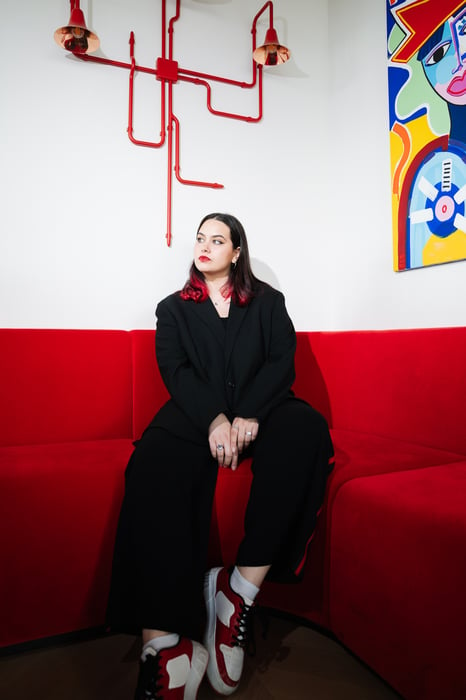
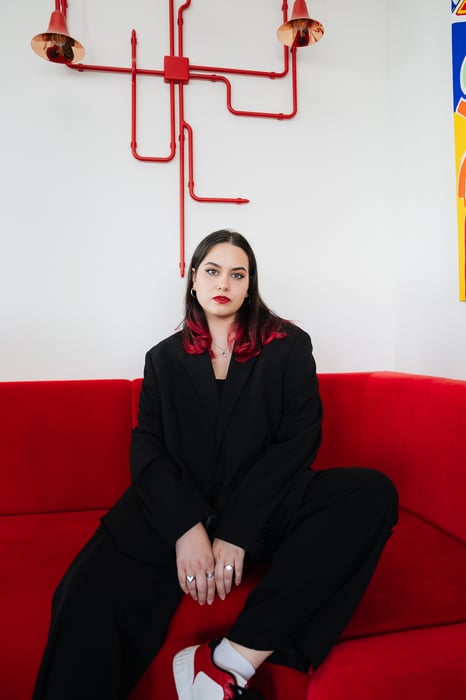
Frederike: I think you can already hear that very clearly. But I think you generally work with humor and wordplay in your songs. How important is storytelling to you?
Teya: Extremely important. I think lyrics are very, very important to me. I believe, and I've noticed this myself, that melody is really 1% above everything else, because it makes such a huge difference. Then come the lyrics, and then production. I'm usually like: "yeah, just do it somehow, I'm not that picky." I've been working with my producer, Tom Oehler, for eight years now, and I just trust him. I tell him to just do it. I don't think anyone can be an expert in everything anyway. So I usually leave it to the people who know better. What I really know about is lyrics, and I focus a lot on that. When I started the solo project, it was very important to me to be really honest. Because for a long time, I wrote what I thought people wanted to hear. Things that are easy to digest, most of the topics that are played on the radio - love, heartbreak, blah blah blah. But at the time, those were all things I had never experienced and couldn't really relate to. Sure, I could empathize with them in a way, because I'm an empathetic person, but it's definitely not something I could embody. In 2023, I was in a duo at Eurovision and we did a song that I never thought people would get excited about. Because it's just a topic, so why do you do a song about it and why should people listen to it? That was my mindset at the time. But then I quickly realized, okay. Because it's an important topic for me and it moves me deeply, the people around us also picked up on it, understood it, and researched it, and then our passion sparked passion in them too. I think that was a huge learning experience for me, where I said, "Okay, from now on, I'm only going to write songs that move me, that are important to me. Topics that are relevant to me right now." Since then, I've been a very honest lyricist.
Frederike: Do you have any lyrics that you're particularly proud of?
Teya: Now, of the new songs, I think the first verse of "Bourgeoisie" is pretty nice. It mentions the term "corporate composer," which doesn't actually exist; it's a coined term. I think it sums up perfectly what the EP means to me, which is also the name of the EP. I think I'm a little proud of that.
Frederike: In your song "Talk That Talk," you talk about women in the music industry and how difficult it is. What would you have liked to know beforehand?
Teya: Hmm, a lot of things, probably. The basics, for sure. You have to read contracts, and you don't trust anyone blindly. That kind of thing. I think what I had to learn the hard way was to desperately take up space. Even in songwriting sessions, for a long time, I didn't feel like I could take up that space and throw my ideas out there and have them heard. Because for a long time, they simply weren't. And I think I had to learn very quickly that it's just an unfair job and that there's no level playing field and I can't wait for others to make room for me. In this industry, everyone is very focused on themselves. I had to learn to stand up for myself, even if it's uncomfortable. This is very much the case for me because I've always been a people pleaser, and also because I grew up as an immigrant, so it's ingrained in me to keep a low profile and not take up space. Then you often fall flat on your face. I think that was a huge learning curve, and I probably would have been better off if I had known that from the start. Okay, it sucks at first, but you just have to get through it. I think it would have been good if I hadn't gone into this business so naively, trusting that people would take care of me. Yes, it would have been nice if that were the case, but I think in many cases it's not. So it's good to be prepared and look out for yourself.
Frederike: To take that step further, how exactly did you make more space for yourself? How can we imagine that? How exactly would you do that?
Teya: I think that's a very valid question. Easier said than done. It's also a trial-and-error thing. What definitely helped me is that I never really allowed the industry to change me as a person. But it was very clear to me very early on that if I had to change my personality to be successful, then I didn't want to be successful. And then my approach was mostly just friendly communication, so that when someone interrupted me, I would say nicely, "Hey, I wasn't finished with my idea, don't you want to listen again?" Or when, as unfortunately still happens very often, someone - usually men - tries to sell my idea as their own. Then you can just say, "Hey, cool. You like the idea, but it's mine. Let's just say that I came up with it. Maybe we can work on it together." It's a lot of buttering people up, but it also makes people think that you're a team. Even if they don't make you feel that way, that you just keep maneuvering yourself into situations is perhaps a very negatively chosen word. But that you don't let go of the reins, that you keep throwing your name into the conversation, that you stay on the ball, that you somehow bring everyone in. That you do that for other people, too. That's also a huge thing. When I have a session, for example, with an artist, and I notice that she's shy or doesn't dare to speak up, I always make sure to take the time to let her know that she has the opportunity to take up space and be heard. If someone talks over her, I say, "Hey, she's talking right now" or something like that. I believe that the more you do that yourself, the more people will do it for you, and then you'll have a community of people who will stand up for you. For example, as I mentioned, my producer, Tom Oehler, is not all men in this business are like that. I'm really lucky that people like that notice things and stand up for you and say, "Hey, cool, but Teya had this idea almost two minutes ago. If you like it anyway, just go with Teya's idea." I think it's really about noticing details and microaggressions and doing something about them. And really saying things, even if it's uncomfortable. That might be a good start.
Frederike: Very good, so now I can definitely imagine how to approach it directly.
Teya: You really mustn't forget that. I tell myself that quite often. When I'm in a situation where I have to ask for money or for the percentage I'm entitled to, or something like that. I really tell myself every time that a man would have the audacity to do that and wouldn't even think twice about it. Really, he wouldn't. That's just the way it is, and I think it's somehow socialized that women in general very often think of others first before themselves. I think we need to rethink that somewhere. I was in a situation recently where I was in a songwriting session and there were four of us. Normally, you split it equally. So everyone in the room, no matter how much input they had, gets an equal share. In that case, we would all have had 25%. But then they scheduled a recording session that I wasn't invited to. I wasn't told that it existed. Then they changed three or four words during the recording because it sounded better that way. Suddenly, I was told I would get 15% because four words had been changed and I wasn't in the room. A few years ago, I would never have dared to say anything like that – it was a high-profile artist. But now I was in a situation where I said to myself: Dude, no, the other three men who are getting their 25 or now even more percent would say exactly the same thing. And I really have to stand up for myself and say, I'm not going below this percentage. And then, of course, it went down the drain, because sometimes it just doesn't work out. But then one of the writers I often work with reduced his percentage. So that he and I had the same amount and the other two had more than us, but also the same amount. That's a good example of how you can stand up for yourself and it might not work out. But there are also people in the music business who are okay and will meet you halfway.
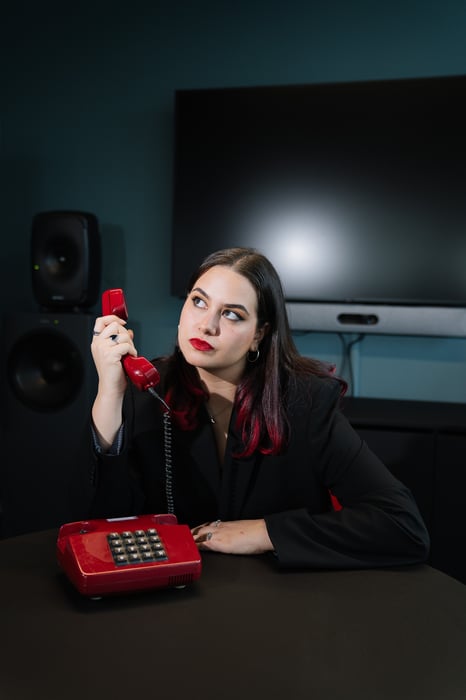
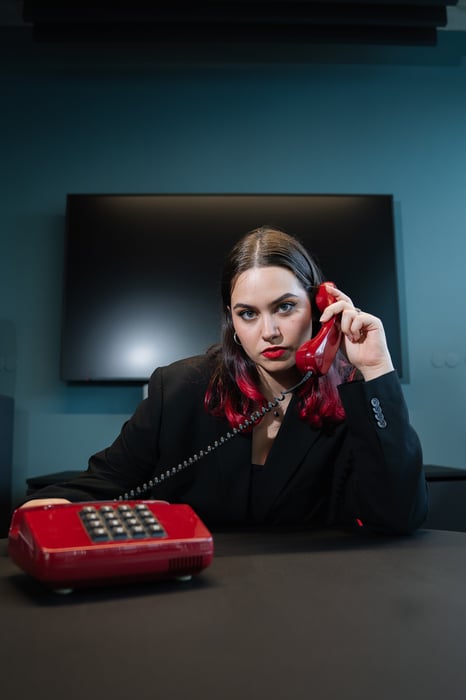
Frederike: At this point, I can come out and say that I'm a huge Eurovision Song Contest fan. I remember watching my very first Eurovision in 2007, when I was six years old, with my mom on the couch.
Teya: That was the year Serbia won, right? 2007 or 2008? That was also my first Eurovision, around that time.
Frederike: I definitely know it was Dima Bilan with "Believe" who won the year before. That's actually one of my core memories. But regardless of that, you competed for Austria yourself in 2023. How did that come about? How did you decide to try to enter the ESC world?
Teya: That was actually one of my goals before that, too. I was also a fan of Eurovision as a child. I watched it for the first time, or at least became cognitively aware of it, when Serbia won. For me, that was a crazy moment because I was already living in Vienna at the time, so I was new to Vienna. I was like, Wow, someone from my country made it to this huge stage, and not only made it to the stage, but also won. Then it became a little dream of mine, "Ah, maybe Eurovision one day." When I started making music, serious music, I fell into those circles, and then in 2019, I had my first real contact with the Eurovision world when one of my songs was submitted. I didn't write it. I recorded it and it came second internally in Austria. I wasn't accepted on the grounds that I was too inexperienced, which was totally true. I had no stage experience before that, except for a musical, but you can't compare that to Eurovision. So we decided that I would take part in the Serbian preliminary round. That's a national final selection where you perform on television. Just for the experience, because I knew I wouldn't be chosen. Then my parents and I translated the song into Serbian. So I went there and gained my first Eurovision experience. Then it was kind of clear that, okay, let's just try again. I had a few ballads that I sent in, and they always ended up at the top. I had a ballad where "Who The Hell Is Edgar?" was chosen, and my ballad was in first place. But then we all collectively decided to go with the runner-up song, which we thought had more potential. But how the song came about was ultra spontaneous. I was at a songwriting camp in Czechia and I brought Salena to the camp. I knew she also wanted to go to Eurovision, and it was a Eurovision camp. She needed songs, so I thought she should just come along. We knew each other from Starmania in Austria and were also in the same group of friends in Austria. What always connected us was our love for Eurovision. She had tried before. We were at the camp, and then on the last day, we were put in the same group, and I wrote for Selina as a writer. I wrote a song for her that day, also a ballad. Then we had an hour left until the listening session, where everyone gathers and plays the songs from that day. I said, "Hey, let's do a funny song for fun." Then the song came about, and at the listening session, everyone loved it. Because I'm a Eurovision fan, I also follow the contest and knew that this was something the fans would really love. That's how the idea came about, like, "Yeah, let's submit it." And that's what happened. It was very spontaneous.
Frederike: So you didn't actually expect it to be the song?
Teya: No, not at all. I think Salena regretted going along with the joke for a long time. Because then it got serious at some point and we were at ORF presenting the song and we had made T-shirts with Edgar's face on them and did a silly dance. Then we were both like, "Oh, there's no turning back now." Now we have to see it through somehow. But yes, that's kind of how it came about.
Frederike: I actually wondered why you competed for Austria and not for Serbia.
Teya: Well, at that point, I had lived in Vienna almost my entire life and had gone to school there. Of course, I could have done that too, and it would have been totally fine. But it felt more right to compete for Austria. I think that was okay, too.
Frederike: And would you say that this ESC experience influenced you or changed your music in a certain way?
Teya: Yes, totally. I don't think I would be the artist or the person I am today if I hadn't done that. I think it was really good for me to have that experience. It wasn't a good experience; it was a really shitty year for me. But I learned so much and developed so much, and that was really the turning point where I decided to really take up space, be myself, be honest, and really not give a fuck what other people think and just do my thing. I think Eurovision was really the turning point in my becoming the person I am now.
Frederike: Then came this year's Eurovision. I had asked myself during my preparation: Are you now officially an ESC co-winner?
Teya: As a songwriter, yes. It's a song contest, and the writers are ultimately winners too, and they also get a little trophy. So yes, actually, I am. It sounds kind of weird when I say that about myself.
Frederike: Is yours still intact?
Teya: Mine is intact, mine is Vienna. I left it with my parents. My roommate, Thomas Thurner, produced and co-wrote the song. We have one at home, his. It's in the hall, so every time we go to the bathroom, we see it.
Frederike: What is it with musicians and awards in the bathroom? I've heard that a few times now. Not in the toilet, but I've heard a few times that it's near the bathroom.
Teya: I think I've wondered about that too. I really believe it because every time you see the trophy, you have one of those pinch-me moments of "wow, that really happened." I have to keep reminding myself that when I was seven years old, my biggest dream was to go to Eurovision, and now I've won Eurovision Songwriting and have a trophy at home. I think it's good to have something amazing in a place, or at least nearby, where you're superhuman and vulnerable. Because it's a stark contrast that always brings you back down to earth, like, "Hey, yeah, I did it." While I'm peeing, it's such an absurd contrast that brings you back to reality, but you need that in this business. It's so fast-paced and everything is so crazy fast and you always have bigger goals. We didn't even celebrate winning Eurovision; we already had our next goals in mind. You kind of forget, and then it's cool that on the way to the bathroom, you have a reminder of "Yes, I've achieved this in life," and then it's like, "Great, now I can go to the bathroom." In a very strange way, it's the best place.
Frederike: With this abstruse contrast, it somehow makes sense.
Teya: Now you've got a great headline, "Teya looks at her trophy while peeing." That's the downside of never being able to keep my mouth shut.
Frederike: No, the toilet won't be in the title. I watched your 2023 ESC on YouTube to prepare.
Teya: My condolences. laughs
Frederike: I found it quite entertaining. I had a funny moment of nostalgia.
Teya: I never watched it.
Frederike: Oh, never? Why?
Teya: Probably because I've pretty much blocked out my 2023 and didn't want to have the whole trauma thrown back in my face like that. I think that's more likely.
Frederike: Then you've already answered the next question yourself. Many of the comments actually said that they really hope the song will be performed again in the supporting program that's going on outside Vienna.
Teya: Hmm...
Frederike: But I can already tell that's not going to happen.
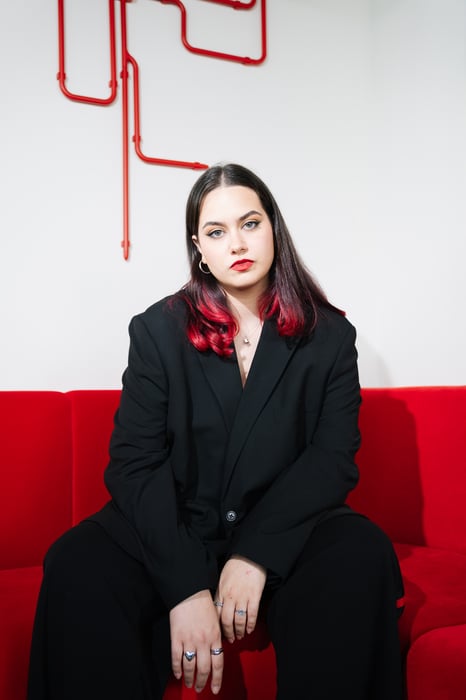
Teya: Yes, the fans aren't the only ones. I think I've already received about ten messages from Salena saying, "Yes, can't we somehow make it happen, or can't you maybe write to ORF now that you're so close to them?" I'm not 100% opposed to it, but it's a bit of a gray area. It would actually be quite funny until it turned into: "Come on, give it a rest." But I think it also has to do with the fact that I've now made an active decision and have been out of the Eurovision game for several months and don't really have anything to do with it anymore. I've also cancelled all Eurovision songwriting camps and all ESC sessions and so on. So I don't really have anything to do with it right now. I don't know how I'll feel about it in May 2026. But right now, it's still a mixed feeling. So I don't know. I know that a lot of people would probably really like that, and that's why I'm definitely considering it, but we haven't been asked yet. So I can't say anything about it yet.
Frederike: I would like to close the ESC chapter here. Or is there anything else you hope for from next year's ESC?
Teya: No, let them do it. They've done it before and it was really good. So they already know what to do. I'll wait and see. I don't have a goal of having a song there next year or being involved in any way. If someone asks me, if something comes up, of course, I'll consider it. But I think a break from Eurovision is good for me, and I'll leave it to the people who are up for it and who are sure to do a good job. Vienna, in particular, is a very good city for Eurovision. I'd also like to watch from afar again. It makes me really proud that Eurovision is taking place in my hometown, that I'm somehow responsible for it. But I also just want to watch it from the outside.
Frederike: You recently released a song with League of Legends. Are you a gamer yourself?
Teya: No, and I think that's a bit of a shame. I shouldn't really say that, but I didn't even know League of Legends was such a big thing. I was asked, "Hey, do you want to sing this?" I thought the song was cool and thought, "Yeah, I've heard of League of Legends, it pays well, I'll do it." And then, about a day before the release, I told my best friend, "Oh, tomorrow there's a song coming out for a video game, cool." I told him more like, "I'm getting paid really well." I think that was my biggest paycheck so far. I announced it to him, and he was like, "What?" Then I mentioned League of Legends, and he almost fainted because he's been playing it for 15 years. I didn't know. Then I had to sit down in front of the screen for an evening and he explained everything to me. Who are the best players, what is Worlds, and how does it all work? He showed me the game, then I had to play a round with him. So, in the end, I was almost nervous before the release because I was like, "Oh, people are going to hear this." And then that's what happened. Then it was somehow number 1 trending on YouTube and I was at home like, "Oh, okay... Why me?" They asked me so randomly. We still don't know why or how they came across me. It was so random, but I feel honored.
Frederike: That's nice!
Teya: Now I'm also checking the scale of it and I'm really grateful that I get to be part of this world and I think it's super exciting and a great opportunity. I'm now approaching it with a lot of gratitude. Not only because it was a very well-paid job, but also simply because it's a huge thing and having my name there is also very humbling.
Frederike: If you could record a song with someone right now, who would it be?
Teya: RAYE.
Frederike: Wow. Yes. I saw her live for the first time at Lollapalooza and I was like, "Damn." I go to a lot of concerts, even in my private life, but that was really the first time in a long time that I've seen someone on stage and I stood there and thought, "Wow, that's crazy."
Teya: Yes! I don't really have that fangirl thing either. Also, because I'm in the industry, but with her, man, I think she's really amazing. I saw her at Huxley's. She wasn't that big there; it was wow. I mean, she's an incredible writer and everything, she's also such an important person in the music business and she addresses all the issues that are important to me. I don't necessarily have to record a song with her; I'd just like to say hello. I think that would be cool.
Frederike: You've released two singles in the last few months. What else can your fans look forward to?
Teya: A few more singles!
Frederike: Great!
Teya: Yes. I have another one coming out in September called "Girls Like Girls." It's not as angry as "Talk That Talk," but it's a bit happier, with a bit more women supporting women. We grow up in a society where people somehow expect women to fight and hate each other. But that's not how it really is, and it doesn't have to be that way. That's what "Girls Like Girls" is about. Then there's also a feature next month that I'm really looking forward to with another artist who I think is super cool. So that's coming, and then there's another single coming out this year that's a bit more ballad-esque. So there's really some music coming out that I'm personally very excited about. Which I haven't had in a long time, and it's also very fulfilling. It also gives me a bit of liberty to not give a f*ck about the numbers and what happens with them. Because I'm super happy with the music and proud of what we're releasing right now, I hope it finds an audience somewhere that will celebrate it.
Frederike: What do you want people to feel, or your listeners, fans, people who are just getting to know you? What do you hope for yourself when you release a song? What do you hope it triggers in people?
Teya: I think a sense of community. A feeling of being understood. I often missed that when I was growing up and listening to music. Something that made me feel like I was being heard. I would like people who listen to my music to feel empowered and a little more confident. Even with the ballads, if not confidence, there is a feeling of "I'm not alone in this."
Frederike: Is there anything else you'd like to say or share?
Teya: I think I've talked a lot. I don't even know what else to say. Yes, "Be nice to each other." Those are my closing words.
Frederike: Those are nice ending words to our chat. Thank you so much for talking to us! It's been great getting to know you more and talking about your music!
WANT TO SEE MORE OF TEYA? HERE ARE ALL THE PHOTOS FROM HER INTERVIEW:
INTERVIEW BY
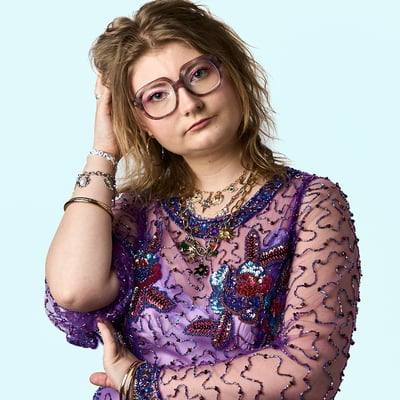
Frederike
Pop culture is my passion, and concerts are my second home. At Unseen Magazine, I dive deep into underground scenes, uncover unheard voices and bring new artists into the spotlight. I aim to showcase Berlin's vibrant music scene and what the mainstream bubble hasn’t discovered (yet).
WRITTEN BY

Frederike
Pop culture is my passion, and concerts are my second home. At Unseen Magazine, I dive deep into underground scenes, uncover unheard voices and bring new artists into the spotlight. I aim to showcase Berlin's vibrant music scene and what the mainstream bubble hasn’t discovered (yet).
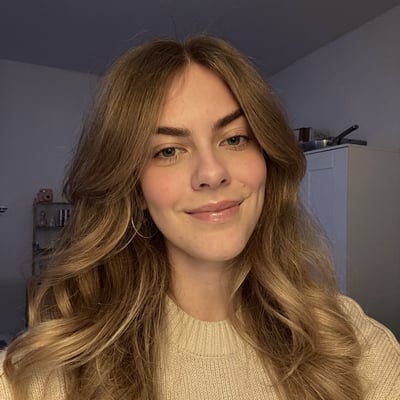
Laura
The excitement and emotions of loving something so deeply, let it be a musician, song, concert, books or even sports, has always been a prevalent and influencing part of my life. Time goes by so quickly, and I love to indulge in the sense of community being experienced in music, with book-lovers or sports fans. My favorite part is the very connection you share with people, strangers becoming friends and the joy of discovering something new that you learn to love. Sharing my passions, newest discoveries, new/old recommendations and so much more is what brings me joy in my spare time and is what I like to do as a writer for this magazine.
PHOTOS BY
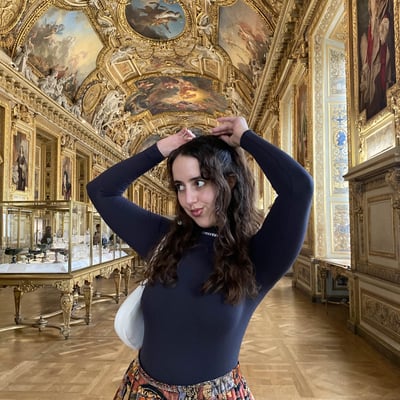
Dana Raffaela
I love capturing real, unfiltered moments. There's something so special to the energy of live concerts and events. My approach is all about connection, no stiff poses, just genuine stories told through light, movement, and mood.

